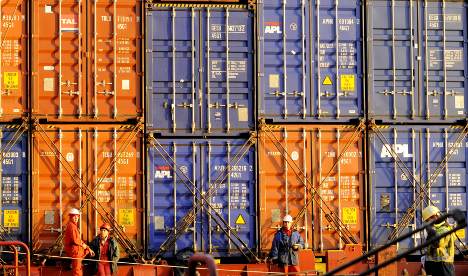“What was striking in 2009 is that both exports and capital formation in machinery and equipment slumped heavily,” the Federal Statistics Office said in a statement. “Foreign trade, which in previous years had been a major driving force for growth in the German economy, slowed down economic development in 2009.”
But after slumping sharply in the first three months of 2009, economic activity rebounded in the second quarter, thanks in large part to government stimulus measures.
The government also posted a public deficit of 3.2 percent last year after managing to balance its accounts in 2008, the office said.
Europe’s biggest economy grew in 2008 by 1.3 percent, and the central bank estimated last month that it should grow again by 1.6 percent in 2010. For 2011, the Bundesbank has forecast weaker growth of 1.2 percent.
“The outlook for the German economy has gotten noticeably brighter in recent months,” the central bank said on December 4.
Analysts at Germany’s biggest private, Deutsche Bank, expect even stronger growth of 2.1 percent and 1.4 percent respectively in 2010 and 2011. The country’s export-orientated economy took a hit from the global economic slowdown but is set to benefit from renewed emerging market demand for capital goods such as machine tools and chemicals used to produce finished products.
The German government has also approved a fiscal stimulus package worth up to €21 billion ($30 billion) in 2010, including €18 billion in tax relief for private households that should underpin consumer spending.
Unemployment in Germany has been limited meanwhile by the country’s short-time work scheme under which the state subsidises shorter hours for workers to avoid widespread layoffs. Various measures contained in the plan are due to run until mid 2012 at the latest.
The number of jobless is nonetheless expected to reach more than 3.8 million people this year, and 4.2 million in 2011. It averaged 3.42 million, or 8.2 percent of the workforce, in 2009.



 Please whitelist us to continue reading.
Please whitelist us to continue reading.
Member comments